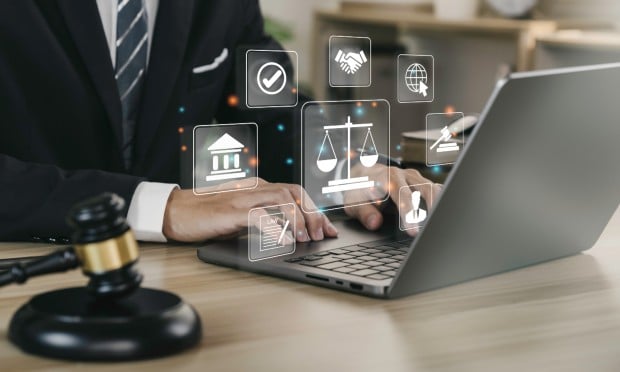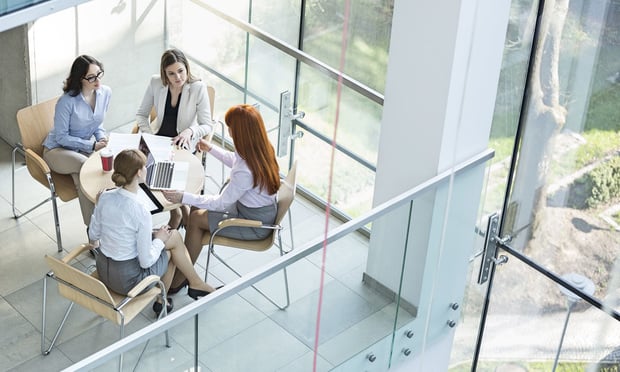At Google, some employees use a tool that restricts timespent on email. A senior Apple Inc. executive said hiswife used a device that sets iPhone and iPad limitsfor their children. Members of a venture capital firm meditate before phone-free quarterlymeetings. Slava Rubin, co-founder of crowdfunding site Indiegogo,has a strict no-screen policy for gatherings and adopted a similarrule for his bedroom.
|"Literally, the only electricity we use is one lamp," hesays.
|Faced with a deluge of text messages, social-media updates,emails and other distracting alerts, tech executives, entrepreneursand rank-and-file workers in Silicon Valley are tryingto limit their use of the gadgets and digital services theyhelped create. The efforts show how the industry is grappling withits own concerns about the attention-sapping effects of the smartphoneage. On Monday, a group of former employees from Google,Facebook and elsewhere announced the creation of a groupcalled Center for Humane Technology to raise alarmsabout the harmful effects of modern technology on children, andto pressure companies to make products lessintrusive and addictive.
|"It definitely took a long time and much misery before I figured outwhere to draw the line," said Joe Hewitt, who led Facebook's earlyefforts to put the social network on mobile phones. Hewitt, whoisn’t part of the new advocacy group, said he used to fall intointernet rabbit holes, debating people online and scrolling throughTwitter. Now he mutes all but the few friends on Facebook whoshare his interest in gardening, and he rarely posts anythingoutside the occasional Instagram picture of a home-grown figor artichoke.
|Some employees of Alphabet Inc.’s Google use softwarecalled In Box When Ready. Downloadable for the Chromebrowser, the program lets people schedule "lockouts" so theycan't access messages during certain periods. It also hidesnotifications of new emails except for specific periods of time,removing the temptation to dive into a growing backlog. The toolalso provides feedback about how much time a person is spendingwriting and reading messages, versus targets they set. “I'm usingInbox When Ready to protect my focus,” the emails say belowuser sign-offs.
|At Facebook Inc., wood-working and analog art-making areas atthe headquarters campus give employees the chance to step awayfrom screens. In San Francisco, Facebook co-founder DustinMoskovitz, now running the business software company Asana,encourages younger employees to turn off notifications on theirphones. Rudin of Indiegogo only checks email during designatedtimes, limiting his messages to quick exchanges. Anything thattakes longer he does in person or over the phone.
||Alexander Ljung, the co-founder of SoundCloud Ltd., says heturns off all notifications on his phone outside of a messaging appthat few people can reach. Thomas Meyerhoffer, a former Appleindustrial designer, also blocks alerts on his phone and moved allapps off his iPhone X home screen. Among friends andcolleagues, Meyerhoffer said conversations about theconsequences of modern technology are common these days. Googlesearches for "smartphone addiction" hit an all-time high inJanuary.
|"There is an increasing awareness," said Meyerhoffer, who nowdesigns surfboards and co-founded the door-lock company Latch."Every single person from every kind of occupation is talking aboutthis."
|There's a growing body of evidence about the harmful effects ofsocial media and smartphones, particularly on younger people. Arecent report by researchersat San Diego State University and the University ofGeorgia concluded teens who spend more time online are lesshappy than those who spend time on other activities. Another reportby Facebook’s own researchers last year found people who passivelyscroll through posts felt worse afterwards. A groupof pediatric and mental health experts are lobbying Facebookto discontinue its Messenger Kids app. In Paris, schools arebanning mobile phones altogether.
|Meanwhile, prominent figures within the technology industry arecriticizing companies like Facebook. Sean Parker and ChamathPalihapitiya, former Facebook executives, have said the product isaddictive and harmful to mental health. Apple Chief ExecutiveOfficer Tim Cook said he wouldn't let his nephew on social media.Salesforce.com Inc. CEO Marc Benioff compared Facebook tocigarettes.
|A survey released Monday by Microsoft Corp.,the largest workplace software maker, acknowledgedthat new digital technology can make businesses lessproductive.
|The warnings are beginning to reach boardrooms, too. Appleinvestors Jana Partners LLC and the California State Teachers'Retirement System, recently asked Apple to study the harmfuleffects of smartphones on mental health and offer more protectionsfor children. A Facebook shareholder is pushing its board to createa risk committee that will study the potential financial harm toFacebook if its product leads to depression or other mental healthproblems. The Center for Humane Technology said it will be beginlobbying for new laws to regulate the technologycompanies.
|||"The technology industry is reaching the point where they willneed to put more resources into addressing the negativeexternalities of their products and services," says Jonas Kron,senior vice president at Trillium Asset Management, the Facebookinvestor lobbying for the risk committee.
|As “mindfulness” enters the Silicon Valley lexicon, the urge tounplug is creating new business opportunities. Digital detoxretreats where people spend several days without technology areincreasingly popular among tech workers, as ismeditation. Jack Dorsey, the CEO of Twitter and Square Inc.,recently finished a 10-day silent meditation that strictlyprohibits any communication.
|Asana co-founder Justin Rosenstein, who helped createFacebook’s “like” button, meditates one hour per day. Benioffhas mandated that each floor of the Salesforce's soaring new officetower in San Francisco have a meditation room, "where employees canput their phones into a basket or whatever, and go in to an areawhere there's quietness," he said in 2016. And for thosewithout time for a retreat or access to a dedicated space, appsincluding Calm and MindfulnessDaily are available.
|Jon Callaghan, founder of True Ventures and former chairman ofthe National Venture Capital Association’s board of directors, saidphones are not allowed in partner gatherings. At the firm’squarterly meetings, participants meditate at the beginning ofevery session. He limits phone usage at home and his family has ano-device policy for meals.
|Tony Fadell, the former Apple executive involved in the creationof the iPhone, said he experienced the distracting effects of thedevice almost immediately after its 2007 release. Most employees atthe company didn’t use Blackberries or other pre-iPhonesmartphones, meaning email was limited to certain times of the day.Messages outside work hours were rare. “When the iPhone hit, youcouldn't stop the stream of emails because the devices werealways on people,” Fadell says. He thinks companies should blockemployees from sending and receiving emails during non-workhours.
|The technology industry needs to own up to the addictivequalities of its creations and add new safeguards that make iteasier for people to put away their phones, Fadell said. Apple andGoogle, owners of the two largest smartphone operating systems,should offer apps that break down smartphone usage -- time spentreading and writing texts, in apps such as Facebook, browsingthe web, writing emails -- similar to how their health appsshow steps walked or hours slept each day, Fadell said.
|||"They have all that data, just give it back to us," Fadell said."This isn't like building a self-driving car, which is 10,000-timesharder and costs way more."
|Companies are beginning to get the message. After Jana andCalSTRS demanded action in early January, Apple said it plans new features togive parents more control over how children use itsdevices. “We think deeply about how our products are used andthe impact they have on users,” the company said in a statement.Facebook CEO Mark Zuckerberg is changing the company’snews feed to reduce mindless scrolling and increase meaningfulinteractions between friends and family. Google recently ranan ad highlighting themental-health implications of smartphone and social-media use.
|Regardless, many technology-industry veterans are taking theirown measures. Fadell, whose family has no-screen Sundays, usesa product called Circle that sets onlinetime limits and blocks certain content. The device connects to aWi-Fi router, making it easier to set restrictions for any devicein a household connected to the network. Devices can bedisconnected completely during pre-set hours, like bedtime.
|"Some families are more concerned about the kind of contentthey're exposed to,” said Circle CEO Lance Charlish. “Othersmay be worried about device time and life balance." The company hashundreds of thousands of customers and revenue has doubled everyyear, he added, without being more specific.
|One customer is Luca Maestri, Apple's chief financial officer,according to an interview he gave last year to journalistand award-winning author Maria Teresa Cometto.
|“These devices absorb so much of kids’ lives and it’s a bit of achallenge to set the boundaries,” Maestri told Cometto. His wife decided to use Circle as ameans to moderate their children's iPhones and iPads, according toa write-up of the interview by i-Italy, a magazine about thecountry and its ties with the U.S. It’s unclear if the CFO or hiswife still use the device. An Apple spokesman declined tocomment.
|Rudin, of Indiegogo, said that if all else fails, religion canhelp. His family observes the Jewish custom of Shabbat everyFriday night through Saturday, meaning technology use isrestricted. "My wife will turn her phone and any other tech off for25 hours straight," he wrote in a weekday email. "I try to dothe same, but it's not always possible :)"
|Copyright 2018 Bloomberg. All rightsreserved. This material may not be published, broadcast, rewritten,or redistributed.
Complete your profile to continue reading and get FREE access to BenefitsPRO, part of your ALM digital membership.
Your access to unlimited BenefitsPRO content isn’t changing.
Once you are an ALM digital member, you’ll receive:
- Critical BenefitsPRO information including cutting edge post-reform success strategies, access to educational webcasts and videos, resources from industry leaders, and informative Newsletters.
- Exclusive discounts on ALM, BenefitsPRO magazine and BenefitsPRO.com events
- Access to other award-winning ALM websites including ThinkAdvisor.com and Law.com
Already have an account? Sign In
© 2024 ALM Global, LLC, All Rights Reserved. Request academic re-use from www.copyright.com. All other uses, submit a request to [email protected]. For more information visit Asset & Logo Licensing.









